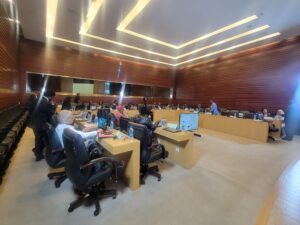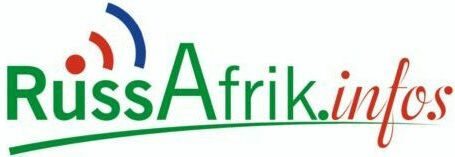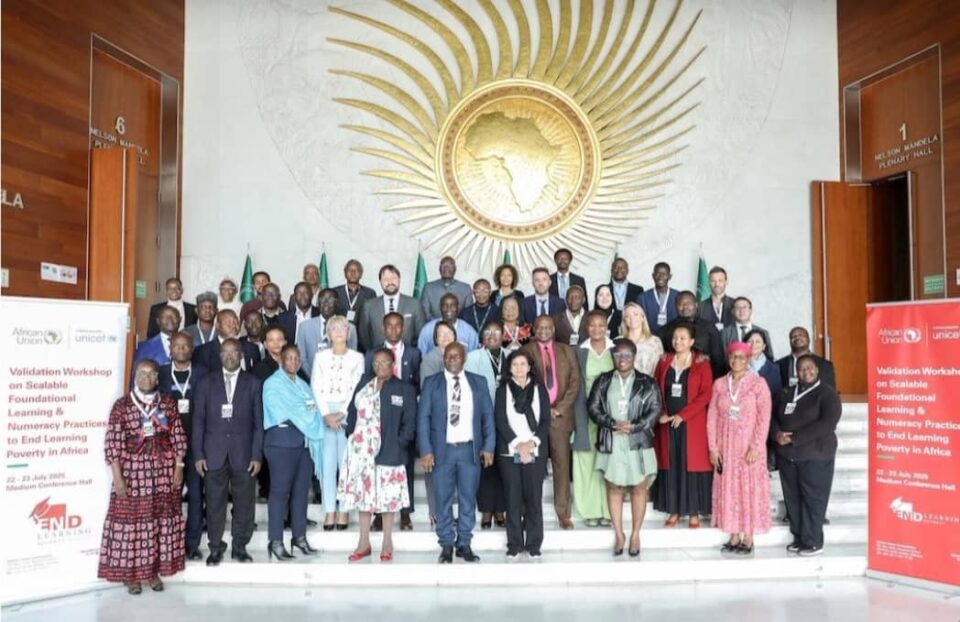

In a decisive step to address the deepening learning crisis in Africa, the African Union (AU) has convened a validation workshop on Scalable Foundational Literacy and Numeracy (FLN) Practices. Held at the AU Commission Headquarters in Addis Ababa from July 22 to 23, 2025, the workshop brought together technical experts from 25 Member States, from the African Union Commission, as well as representatives from UNICEF, the Gates Foundation, and other development partners.
The event marks a significant milestone in advancing the End Learning Poverty for All in Africa (ELPAf) campaign, a flagship initiative launched in September 2024 during the AU Year of Education. ELPAf seeks to ensure that by 2035, every child in Africa can read, write, and perform basic math by the age of 10.
A Call to Action on Learning Poverty
The urgency of the initiative is underscored by stark data: nearly 9 out of 10 children in sub-Saharan Africa are unable to read proficiently by the age of 10. This foundational learning gap has far-reaching consequences, not only compromising children’s potential but also undermining the continent’s long-term socio-economic development.
 “This is more than just an educational crisis; it is a social and economic emergency,” said Professor Saidou Madougou, Director of the AU’s Department of Education, Science, Technology, and Innovation. “Education forms the bedrock of societal progress. Without it, our future is compromised.”
“This is more than just an educational crisis; it is a social and economic emergency,” said Professor Saidou Madougou, Director of the AU’s Department of Education, Science, Technology, and Innovation. “Education forms the bedrock of societal progress. Without it, our future is compromised.”
Madougou emphasized the need for a revitalized education system one embedding foundational literacy and numeracy at its core and scalable across all Member States. He called on countries to collaborate more closely and share proven practices that can be adapted and implemented in diverse African contexts.
Mapping What Works: Validating Scalable Solutions
At the heart of the workshop was the validation of a continental FLN mapping resource a comprehensive body of research designed to identify and showcase evidence-based, scalable good practices that have demonstrated success across Africa.
“These are not merely case studies, but blueprints for systemic change,” Prof. Madougou noted. “From structured pedagogy in Uganda, mother-tongue-based instruction in Ethiopia, to targeted instruction by learning levels in Zambia, we now have real, tested interventions that can be scaled up to benefit millions more children.”The workshop aims to foster cross-country learning and build momentum around practical implementation strategies, ultimately embedding these approaches into national education sector plans and policies.
A Continental Commitment
UNICEF’s Representative to the African Union and UNECA, Dr. Laila Gad, underscored the importance of shared learning and mutual accountability among African nations. “This workshop is more than a technical validation,” she stated. “It is a continental commitment a broader pathway of engagement between educators, policymakers, and practitioners. Through sharing successful approaches and adaptive learning, we can embed scalable solutions into national systems and ensure sustained impact.”
Strengthening the ELPAf Vision
The outcomes of the workshop feed directly into the four-year AU–UNICEF ELPAf campaign, which champions foundational learning as a non-negotiable priority in Africa’s education agenda. ELPAf aims not only to improve individual learning outcomes but also to catalyze broader transformation in African societies by empowering children as future contributors to community and economic development.
Recent national efforts in Zambia and Malawi, both of which have launched foundational learning campaigns, reflect growing regional momentum in aligning with the AU’s call for systemic reform.
Emebet Asefa, Correspondent, Addis Ababa




